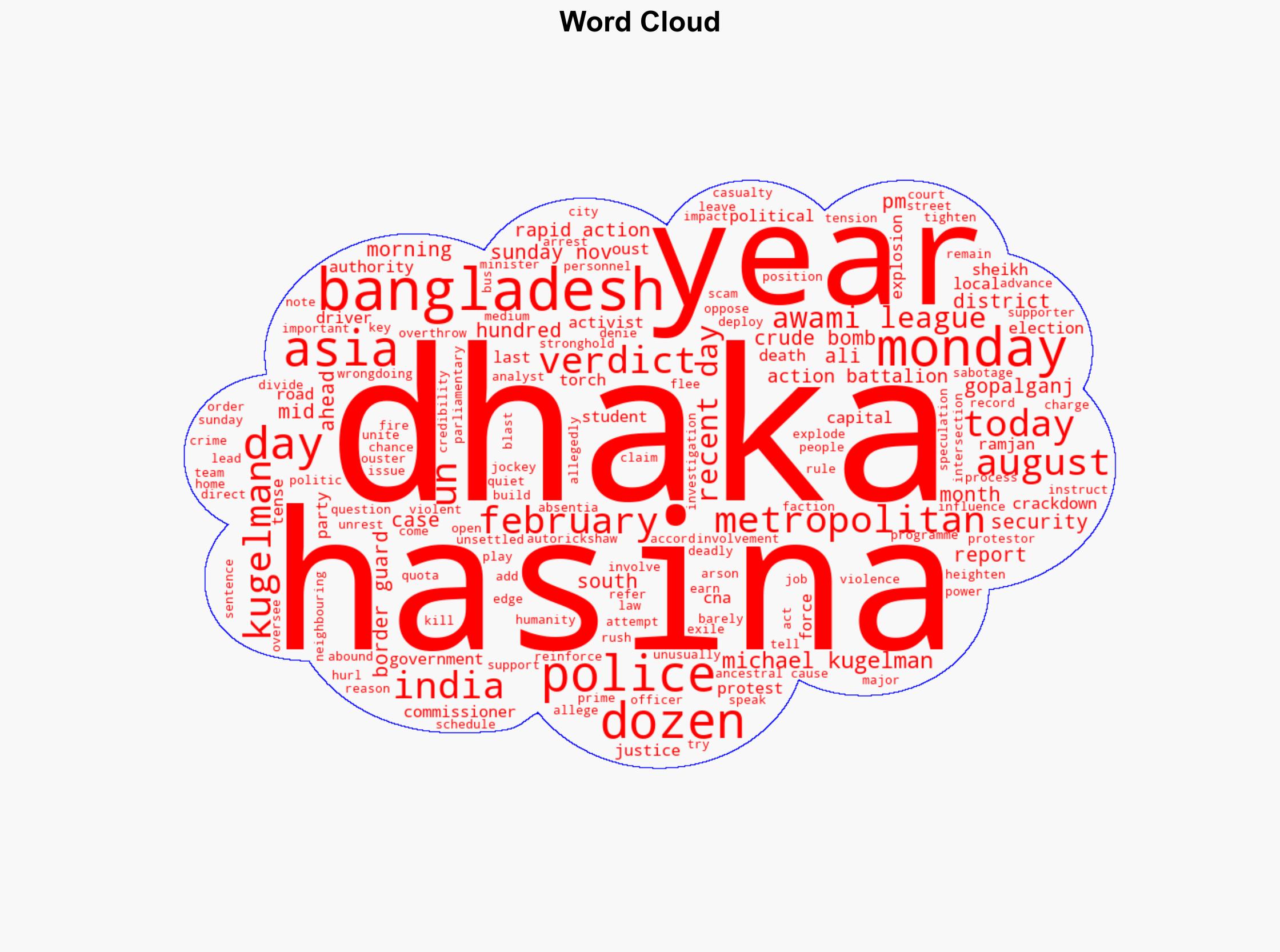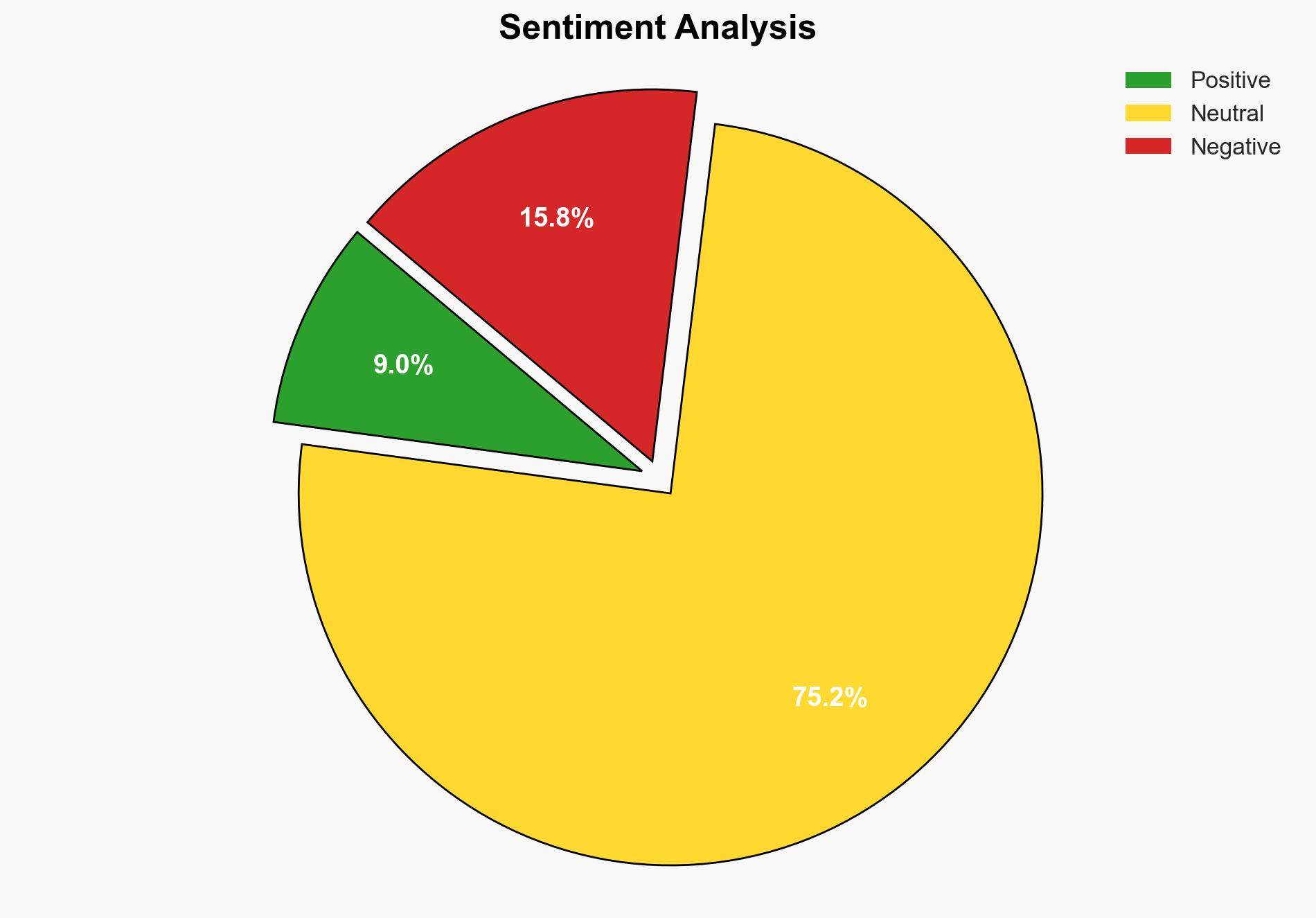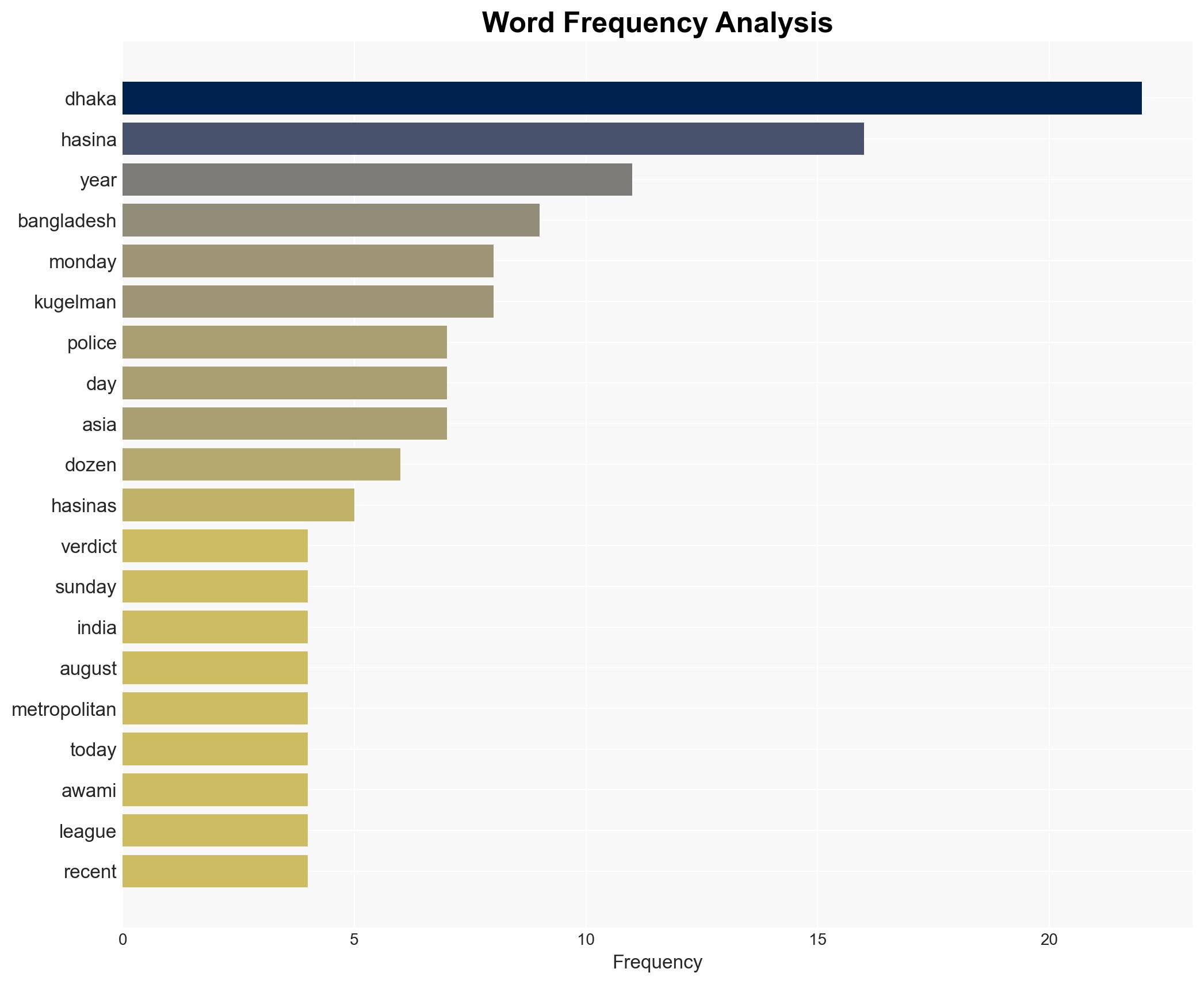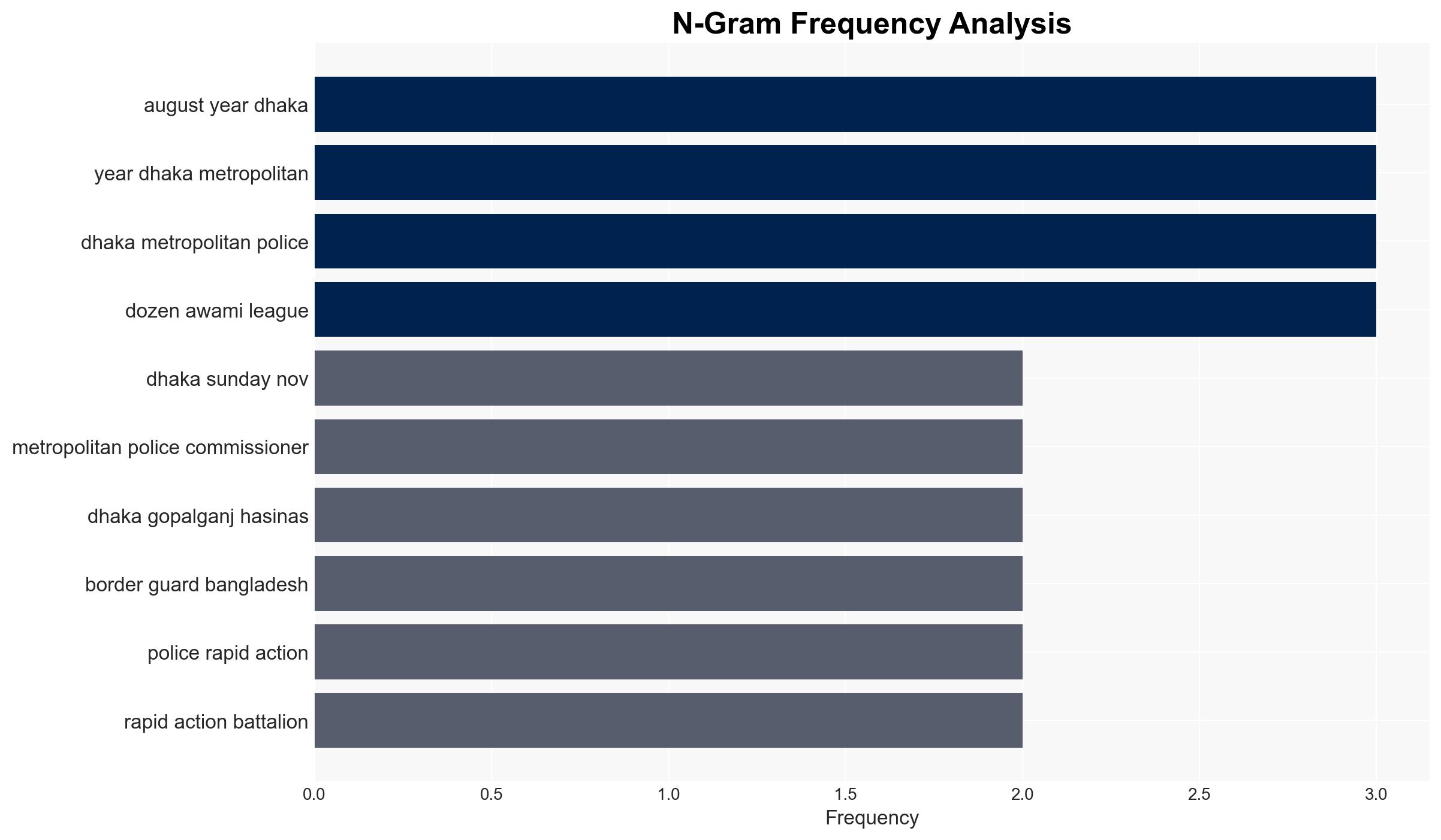Bangladesh tense ahead of ousted PM Hasina’s verdict – CNA
Published on: 2025-11-16
AI-powered OSINT brief from verified open sources. Automated NLP signal extraction with human verification. See our Methodology and Why WorldWideWatchers.
Intelligence Report:
1. BLUF (Bottom Line Up Front)
With a moderate confidence level, the most supported hypothesis is that the political unrest in Bangladesh will escalate following the verdict against former Prime Minister Sheikh Hasina, potentially leading to increased violence and instability. Strategic action should focus on monitoring the situation closely, preparing for humanitarian assistance, and engaging in diplomatic efforts to encourage peaceful resolutions.
2. Competing Hypotheses
Hypothesis 1: The verdict against Sheikh Hasina will lead to significant political unrest and violence, exacerbating instability in Bangladesh.
Hypothesis 2: The verdict will have minimal impact on the political landscape, with the government maintaining control and managing dissent effectively.
Hypothesis 1 is more likely given the historical context of political violence in Bangladesh, the current heightened tensions, and the presence of security forces in key areas. The deployment of Border Guard Bangladesh and Rapid Action Battalion suggests anticipation of unrest, supporting this hypothesis.
3. Key Assumptions and Red Flags
Assumptions: It is assumed that the political factions in Bangladesh are deeply polarized, and that the verdict will be perceived as politically motivated by Hasina’s supporters.
Red Flags: The rapid deployment of security forces and reports of crude bomb explosions indicate potential for orchestrated violence. Claims of a rushed judicial process could undermine the legitimacy of the verdict.
4. Implications and Strategic Risks
The primary risk is a significant escalation in political violence, which could destabilize the region and impact neighboring countries. Economic disruptions are likely if unrest affects key infrastructure or trade routes. There is also a risk of misinformation campaigns exacerbating tensions.
5. Recommendations and Outlook
- Monitor social media and local news for real-time developments and potential misinformation.
- Engage with regional partners to prepare for potential humanitarian needs and refugee flows.
- Encourage diplomatic dialogue between political factions to mitigate violence.
- Best Case: The government manages to maintain order with minimal violence, and political dialogue is initiated.
- Worst Case: Widespread violence leads to significant casualties and destabilization, impacting regional security.
- Most Likely: Sporadic violence occurs, with the government maintaining control but facing ongoing political challenges.
6. Key Individuals and Entities
Sheikh Hasina, former Prime Minister of Bangladesh, and Michael Kugelman, South Asia analyst.
7. Thematic Tags
Structured Analytic Techniques Applied
- Cognitive Bias Stress Test: Expose and correct potential biases in assessments through red-teaming and structured challenge.
- Bayesian Scenario Modeling: Use probabilistic forecasting for conflict trajectories or escalation likelihood.
- Network Influence Mapping: Map relationships between state and non-state actors for impact estimation.
- Narrative Pattern Analysis: Deconstruct and track propaganda or influence narratives.
Explore more:
National Security Threats Briefs ·
Daily Summary ·
Support us
·





